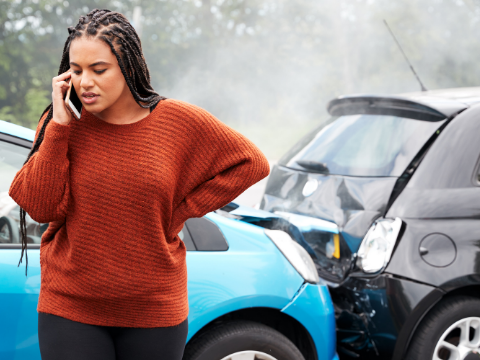Being involved in a car accident can be extremely distressing. Knowing what to do in the aftermath and what steps to take can be crucial in minimising future problems, costs and stress. With this step-by-step guide however, you’ll be able to ensure that you collect all the information required and take all the necessary action.
George is an experienced business development manager at Write my dissertation and Phd kingdom. He also regularly writes for Next coursework, often writing about cars, vehicle maintenance and the legal aspects of vehicle ownership. George has been married for ten years and enjoys spending his spare time restoring classic cars.
1. Stop And Check For Injuries
The most important thing to do first is to make sure that you stop and check for any injuries. Check yourself first and then your passengers. It’s a legal requirement to stop if there has been any harm caused to people, property or if you’ve hit an animal that doesn’t belong to you, which has been injured or killed as a result.
2. Get To Safety
Ensure that you and your passengers move safely away to the side of the road or the pavement. If your car is causing an obstruction but remains safe to drive, you can pull it over the side of the road. Otherwise, turn the hazard lights on in your car and if necessary, use your hazard triangle.
3. Call 999
If you were only involved in a minor collision it may not be necessary to call 999, but you should inform the police nonetheless.
“You’re legally required to inform the police within 24 hours of a collision occurring. If you don’t, you may face serious repercussions, including a monetary penalty, points on your license, or in some cases, face a driving disqualification,” says Jessica Owen, a legal blogger at Origin writings and Brit student.
However, there are instances where it is crucial that you call 999 immediately, including:
- Someone requires medical attention;
- The other driver hasn’t stopped or has left the scene without exchanging any details;
- You have reason to suspect that drugs or alcohol are involved;
- You suspect the other driver may not be insured;
- There’s an indication that the accident was caused deliberately;
- The collision is blocking the road.
4. Stay Calm And Avoid Confrontation
It’s important for you to try to stay calm. Avoid becoming angry, confrontational or getting into a discussion about fault with the other driver. It’s important that you don’t accept liability for the accident or start to apologise, as the other party may later use your words against you, especially if the accident wasn’t your fault.
5. Exchange Details
The next step is to ensure that you exchange details with all other parties involved. It’s essential that you each provide:
- Full name, address and contact telephone number.
- If any vehicles involved were used for work purposes (e.g., delivery vans), get the employer’s details as well.
- Insurance company and the policy number.
It’s also important to write down the name and contact details of any witnesses at the scene, as well as the details of any passengers involved in the accident.
6. Collect Evidence At The Scene
“It’s important to record as much evidence at the time of the accident as possible to avoid confusion later on. Take as many photographs of the scenes as you can, including close up shots of any damage or injuries sustained. You can also take video footage,” says Stephen Webber, a business writer at 1 Day 2 write and Writemyx.
You should make a note of:
- The make, model, type, colour and registration plate of every car involved;
- Any damage or injuries resulting directly from the accident;
- The date, time and location of the accident;
- The direction of travel of each car involved and their road positions following the collision;
- The weather conditions at the time of the collision.
- If any police officers are present, make a note of their name, rank and the number on their collar.
7. Contact Your Insurance Company
Lastly, it’s important to contact your insurance company as soon as possible. Even if you don’t intend to make a claim, it’s important to inform them in case the other driver decides to make a claim. Your insurance company will be able to advise you on how to proceed.
Looking for a car service?






